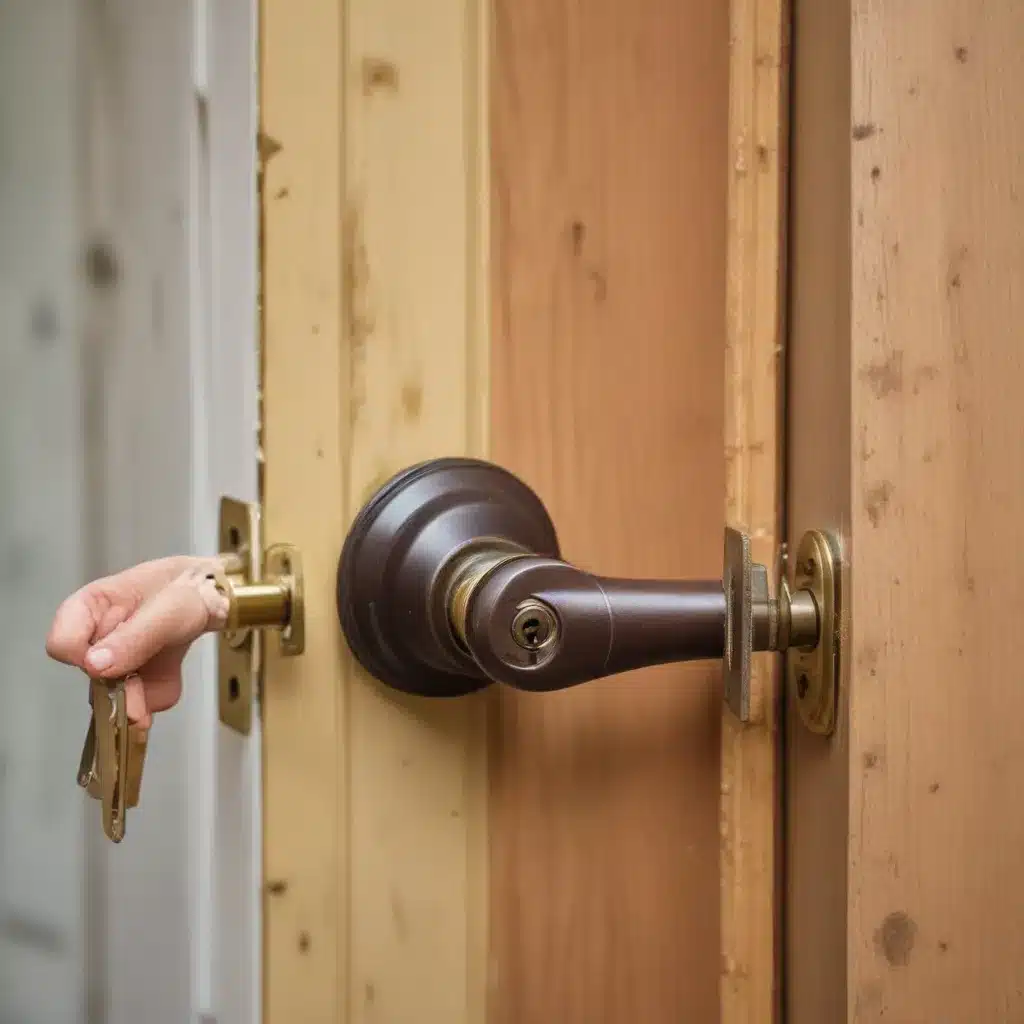
‘Locksmith Scams: Identifying and Overcoming Them for Your Safety and Security’
As an experienced locksmith serving the Washington, D.C. area, I’ve witnessed firsthand the devastating impact that locksmith scams can have on individuals and businesses. These deceptive practices not only compromise your financial security but also put your physical safety at risk. In this comprehensive guide, I’ll equip you with the knowledge to identify and overcome locksmith scams, ensuring that your home, office, and valuables remain secure.
Defining Locksmith Scams
Locksmith scams typically involve unethical or fraudulent practices that aim to exploit unsuspecting customers. These scams can take various forms, but they often share common characteristics:
Bait-and-Switch Tactics: Scammers may advertise low, enticing prices for locksmith services, only to charge exorbitant fees once they arrive at the scene. This “bait-and-switch” approach is designed to lure in customers and then take advantage of their vulnerability.
Unlicensed or Unqualified Technicians: Unscrupulous individuals may pose as licensed locksmiths, lacking the proper training, credentials, and expertise to perform secure and reliable services. These “fake” locksmiths can cause extensive damage to your locks and potentially compromise your overall security.
Shoddy or Incomplete Work: Scammers may intentionally perform substandard work, either leaving your locks in a vulnerable state or charging you for services that were never fully completed.
Lack of Transparency: Legitimate locksmiths should provide clear and upfront information about their services, pricing, and policies. Scammers, on the other hand, may be evasive, unwilling to answer questions, or provide vague or misleading details.
Dangers of Locksmith Scams
The consequences of falling victim to a locksmith scam can be severe, both financially and in terms of your personal safety and security.
Financial Losses: Scammers often charge exorbitant fees, sometimes ten times or more the standard rate for locksmith services. This can result in significant financial burdens, especially for individuals or small businesses that may not have the resources to absorb such unexpected costs.
Compromised Security and Safety: Shoddy or incomplete work by unqualified technicians can leave your locks vulnerable to break-ins, making your property and belongings susceptible to theft or unauthorized access. In extreme cases, this can even compromise the safety of your family or employees.
Locksmith Credentials and Licensing
Ensuring that you work with a legitimate, licensed locksmith is crucial in avoiding scams and safeguarding your security. In the Washington, D.C. area, locksmiths are required to obtain a license and adhere to specific regulatory requirements.
Verifying Locksmith Credentials: Before hiring a locksmith, take the time to ask for their license number and check their credentials. You can typically find this information on their website, business cards, or by contacting the local licensing authority.
Regulatory Requirements: In the District of Columbia, locksmiths must be licensed by the Department of Consumer and Regulatory Affairs (DCRA). This license ensures that the locksmith has met the necessary training, insurance, and background check requirements to provide safe and reliable services.
Proactive Measures for Consumers
To protect yourself from locksmith scams, it’s essential to take proactive steps in researching and vetting potential service providers. Here are some key strategies to consider:
Researching Locksmith Companies: Begin by conducting thorough online research. Look for reviews, ratings, and customer testimonials to gauge the reputation and reliability of the locksmith. Verify that the company’s website and contact information are consistent with their physical location.
Obtaining Multiple Quotes: When in need of locksmith services, reach out to multiple providers and compare their estimates. Be wary of unusually low or high prices, as they may be indicative of a scam. Legitimate locksmiths should provide transparent and reasonable pricing.
Securing Premises During Service: During the locksmith’s visit, be vigilant and monitor their activities. Ensure that they are using the appropriate tools and techniques to properly install or repair your locks. If you notice any suspicious behavior or shoddy workmanship, do not hesitate to terminate the service and seek assistance elsewhere.
Reporting and Seeking Recourse
In the unfortunate event that you fall victim to a locksmith scam, it’s essential to document the incident and take appropriate action to seek recourse.
Documenting Locksmith Interactions: Maintain detailed records of your interactions with the locksmith, including the company name, technician’s name, the date and time of service, and any receipts or invoices. This documentation can serve as evidence if you decide to file a complaint or take legal action.
Filing Complaints and Seeking Assistance: If you believe you have been the victim of a locksmith scam, reach out to the relevant authorities, such as the DCRA or the local police department. These organizations can assist you in navigating the complaint process and potentially recover any financial losses.
Educating the Community
Combating locksmith scams requires a collaborative effort between consumers, law enforcement, and the locksmith industry. By sharing our experiences and educating the community, we can collectively work to raise awareness and prevent others from falling victim to these deceptive practices.
Spreading Awareness: Share your locksmith scam experiences with friends, family, and online forums. Encourage others to be vigilant and to use the resources provided in this guide to identify and avoid potential scams.
Collaborating with Authorities: If you have information about suspected locksmith scams, report them to the DCRA or local law enforcement. Your cooperation can aid in investigations and help strengthen enforcement efforts against fraudulent locksmith activities.
Remember, your safety and security should always be the top priority. By staying informed, taking proactive measures, and working together as a community, we can overcome locksmith scams and ensure that your home, office, and valuables remain secure. For reliable and trustworthy locksmith services in the Washington, D.C. area, consider contacting Local Locksmith Washington DC.


